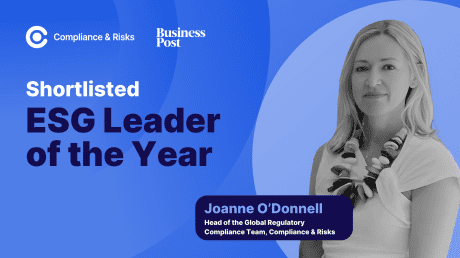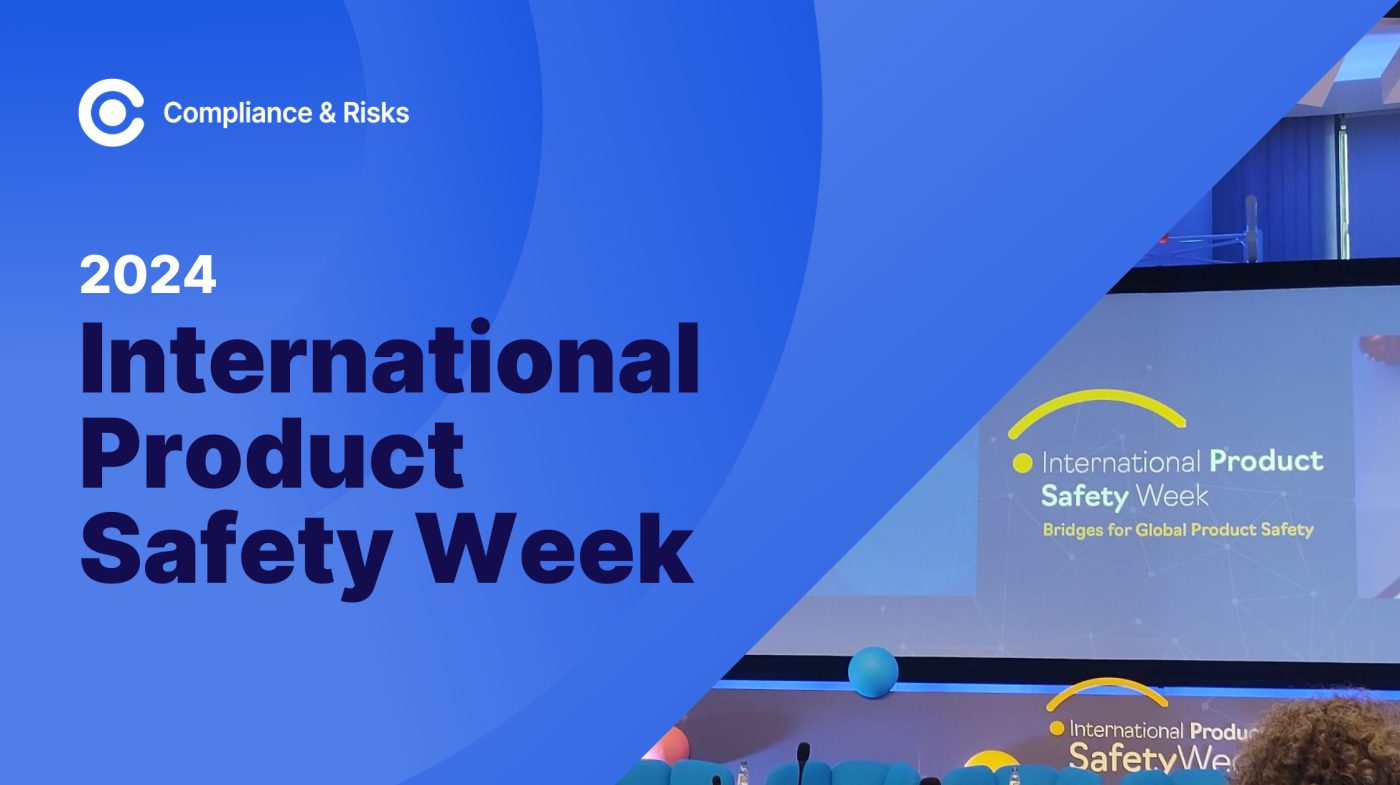
International Product Safety Week: Better Enforcement, International Cooperation & Inclusivity for a Safer Future

This blog was originally posted on 25th October, 2024. Further regulatory developments may have occurred after publication. To keep up-to-date with the latest compliance news, sign up to our newsletter.
AUTHORED BY JOYCE COSTELLO, SENIOR REGULATORY COMPLIANCE SPECIALIST, COMPLIANCE & RISKS
Enforcement is Key to Product Safety
600 participants representing over 70 countries at International Product Safety Week (IPSW) held in Brussels from 14-17 October 2024 heard that adequate enforcement is a must for upholding legal protections against unsafe products, and that regulators must bring a new focus on inclusivity to ensure that all consumers are protected from harms posed by unsafe products.
In his keynote speech, outgoing Justice Commissioner Didier Reynders, set the tone for the week by introducing the essential features of the EU’s cornerstone safety law, Regulation (EU) 2023/988 (‘GPSR’). Mr. Reynders highlighted that currently 75% of all unsafe products originate from outside the EU. He referred to the new principle of the responsible person, which the GPSR will soon require for all products placed on the market in the EU, as giving surveillance authorities the necessary power to act promptly where unsafe products have originated outside the EU. Mr. Reynders also referred to the new capability of consumers to report dangerous products, and that the GPSR will empower consumers by enabling the more efficient circulation of information to them through direct communication channels.
Christel Delberghe, Director General of Eurocommerce, who joined a panel discussion on building bridges to safety, emphasized the importance of consumer trust in the regulatory framework and called upon the EU to improve the quality of legislation, which should be workable, evidence-based, proportionate and practicable. Echoing Mr. Reynders’ concerns about third country players as major sources of dangerous products, EuroCommerce urged the EU to thoroughly investigate these parties with the data currently at the EU’s disposal, and to step-up enforcement.
International Collaboration for Safer Products
The panel was in broad agreement that greater international dialogue and collaboration is needed. A further suggestion came from Sara Lacoche, Director General of Competition, Consumer Affairs and Fraud Control of the French Ministry of Economics, Finance and Industrial and Digital Sovereignty, that an enhancement of digital tools could assist in better detecting unsafe products, and that policy adaptation may be needed to address parties such as influencers inadvertently endorsing unsafe products through their promotions work.
Safety and Circularity: Addressing the Challenges of Second-hand Products
Products that have been given a second life carry inherent risks, and from December these will be caught by the GPSR’s safety net. Beyond GPSR, IPSW heard discussions on questions such as whether technical standards are adequate for products which have been given a second life, and strong consumer perceptions that second products are less safe.
Within this context, the International Standardization Organization (ISO) Circularity Chair Catherine Chevauché spoke about the organization’s standardization efforts, having published three texts last May covering a common definition of circular economy, principles of circular economy and organizational actions for pushing circular economy indicators. Ms. Chevauché suggested that a more detailed framework and greater data-sharing culture could promote the safety of circular products.
Inclusivity: Ensuring Safety for All Consumers
Another key message which emerged during IPSW was that optimal product safety can only be achieved through risk assessments that bear upon the diversity that characterizes the global consumer population.
Dr. Frauke Hoss, Machinery and Equipment Unit, EU Commission emphasized the critical need for inclusiveness in product safety. Some recent improvements were welcomed, such as the binding provision in the GPSR for producers to consider vulnerable parties when conducting risk assessments.
Additionally, ANEC described its ‘Exclusion Clause Campaign’ through which it successfully petitioned the EU Commission to mandate the standardization bodies to revise standards to take into account vulnerable consumers, resulting in the revision of 100+ EN 60335-2 safety standards for household appliances.
Draft Recommendation on General Product Safety Principles
A joint workshop between UNCTAD and the EU Commission revealed that less than 40% of the countries of the world have a consumer product safety framework.
This, according to Ms. Teresa Moreira, Head of Competition and Consumer Policies Branch at UNCTAD, evidences an urgent need for clear guidance on how to develop effective legal and institutional frameworks to protect the health and safety of consumers.
Against this, UNCTAD’s informal working group on consumer product safety is preparing a resolution on general consumer product safety which will establish three core principles, as part of a broader project to assist all states, including those who do not yet have a foundational product safety law, to reach minimum consumer protections by consensus:
- All products offered to consumers, whether online and offline, new and second-hand, in reasonably normal or foreseeable use or misuse, are safe for either intended or normally foreseeable use.
- Businesses have the primary responsibility to ensure that products they make available to consumers are safe.
- Businesses take safety into account in the design, quality assurance, production and supply of consumer products throughout their entire life cycle.
The result of the discussions in Brussels will feed into UNCTAD’s upcoming Ad Hoc Expert Meeting on Consumer Product Safety of 4 November 2024 in Geneva, where member States will continue consultations informing the resolution. A revised draft resolution could then be presented for consideration at the Ninth United Nations Conference to Review All Aspects of the Set of Multilaterally Agreed Equitable Principles and Rules for the Control of Restrictive Business Practices to be held from 7 to 11 July 2025, in Geneva.
Conclusions and Key Take-Aways from IPSW 2024
- The new GSPR and Digital Service Act must be used together to ensure the safety of products particularly with the rise of digital products.
- Better enforcement is essential for consumer trust due to the widespread lack of compliance, particularly from products purchased online.
- Different strategies exist across the Member States and other countries as regards essential product safety for consumers so there is a need for convergence at least at a basic level between countries on safety measures.
- Products throughout the supply chain must be safe so companies need to understand the correct set of data to ensure proper traceability.
- Mental health must be a part of the risk assessment framework for checking product safety – it is not enough to check physical risks.
- Through compassionate leadership a company can really enhance its performance.
- International cooperation with markets outside of the EU such as China and the USA is critical for ensuring safe products are placed on the market.
Stay On Top Of Your Changing Regulatory Obligations
Tell us your compliance challenges and we will find the solution that’s right for you.


